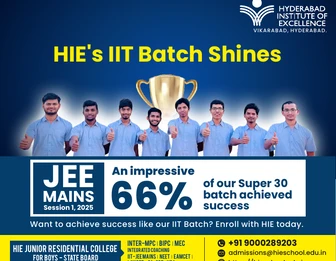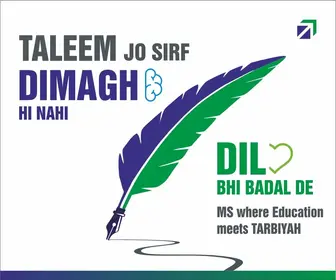
Mahendra Ved is a veteran journalist, who covered some of the most tumultuous events in India and in the Indian Sub-Continent. These include the India-Pakistan War of 1971, when Bangladesh was liberated. Later, he was posted in Dhaka in Bangladesh during 1974-1976, when Banga-Bandhu Sheikh Mujibur Rehman and his family were wiped out, barring the miraculous escape of the present-day Bangladesh Prime Minister Sheikh Hasina, his daughter, who has earned the distinction of becoming the world’s longest-serving woman Head of Government.
In his recently released memoir, titled, @75 As I Saw It, Mahendra Ved covers five decades of his personal life and his professional career as journalist. He has been through the United News of India (UNI), Hindustan Times, Times of India and The Daily of the Blitz Group, since closed down.
The India-Pakistan War of. 1971, the gory developments in Dhaka during 1974-1976 and Why Agra Summit Failed comprise the War and Diplomacy. Equally important domestic events that he covers include the terrorism phase in Punjab that started during the Janata Party Government in 1977-78 and the Operation Blue Star in June, 1984, launched by Indira Gandhi to flush out the terrorists holed up inside the holy precincts of the Golden Temple in Amritsar in Punjab.
Indira Gandhi took a calculated risk in launching Operation Blue Star, because it involved the unity and integrity of the nation. She was conscious of the the consequences that may follow, but she never stepped back. She paid with her life. Anti-Sikh riots rocked the Capital, in the wake of the dastardly and horrendous assassination of Indira Gandhi on October 31, 1984. Mahendra Ved lived through the times and reported the events.
Gujarat carnage in 2002 left a deep scar on the national psyche. President K R Narayanan was upset over the inordinate delay in Army being rushed to Gujarat, even days after the conflagration began. President K R Narayanan nudged Prime Minister Atal Behari Vajpayee to at least react and respond to the ghastly and horrendous situation; forcing Vajpayee to come up with his Raj Dharma remark. Anyway, it was a flippant, fleeting, knee-jerk remark and did not mean anything to anyone. This, no one knew better than the then Gujarat Chief Minister Narendra Modi.
Presidential election was due later that year. Narayanan was certainly not going to be renominated for a second term in the Rashtrapati Bhavan. As the President does not grant interviews, Mahendra Ved managed to get a courtesy call arranged. On July 10, 2002, the meeting took place in the Rashtrapati Bhavan, lasting about 30 minutes. “You can write what you like,” were the parting words of the President.
Since it may not be appropriate to quote President Narayanan, Mahendra Ved chose to attribute it to Rashtrapati Bhavan sources. He could capture President Narayanan’s anguish over how Secular ethos were being openly threatened by aggressive communalism and how his pleas for restraint and mutual tolerance fell on deaf ears.
For a Parliament reporter, it is central during his professional career. Inevitably, the shifting of Parliament to new building complex leaves him high and dry, as it does anyone familiar with and interested in the parliamentary system of democracy.
Lok Sabha Speaker Meira Kumar in 2012, during the Congress-led UPA Government, was the first to consider refurbishment of old Parliament or going in for a new complex at a cost of Rs 1200 crore. The then Prime Minister Dr Manmohan Singh found the amount too enormous and chose not to make any allocation, leaving matter to rest there.
Prime Minister Narendra Modi went ahead with the idea of new Parliament building. He did not consult anyone even on the design, before approving it.
There is no Central Hall of Parliament. This is where the President used to address the Joint Sitting of both Houses of Parliament. This is where MPs from both Houses of Parliament, former MPs and even State Ministers and legislators from the States, all across party lines, alongwith senior journalists, used to meet and interact over snacks and coffee.
Prime Minister Modi chose to dispense with the Central Hall in the New Parliament Complex. The new complex resembles a posh, five-star convention centre, lacking in the sanctity associated with Parliament.
Mahendra Ved says, “It is sad to record this in the past tense. Central Hall was unique to India, no other parliamentary bodies elsewhere appear to have anything similar. It was circular, with a dome 30 meters in diameter. Although a century old in a city with older monuments all abound, it was a place of historical importance. Here, the Indian Constitution was debated for over two years, framed and passed. Jawaharlal Nehru made his. Tryst with Destiny speech at midnight on August 14-15, 1947, heralding the birth of Independent India.”
He goes on to add, “Whatever the rationale — I may have missed reading it — the ladder on which the Indian parliamentary democracy has moved up, has been knocked off.”
Parliament coverage has been ended. Similar is the fate of Prime Minister’s Office (PMO). Once it was an important, vibrant and active beat, usually allotted only to senior journalists. Now, virtually the PMO ceases to be a beat. In fact, Ministry-specific beats have now become a thing of the past. In fact, there is no news emanating from the Government, which has become a garrison, out of bounds for the mediapersons.
The best part in the memoir is how Mahendra Ved researched to trace the history of the Kutchi Bhatia community, to which he belongs. His own family, from the Bhatia stream, moved from Jaisalmer in Rajasthan to Kutch in Gujarat. Bhatias mainly live along the river systems in Sindh, now in Pakistan, besides Punjab, Rajasthan and Gujarat.
Interestingly, this is not a dreary account of politics and diplomacy alone. It includes his interesting account of how he ran into Prime Ministers, former Prime Ministers, some who could not become Prime Minister like L K Advani, diplomats, security experts and senior journalists.
Besides, he met up with the likes of the Lady in White, Nargis, who was nominated to Rajya Sabha by Indira Gandhi in 1980; Jayalalitaa, who was nominated to the Rajya Sabha by M G Ramachandran in 1984; and Vyjayantimala Bali, nominated by Rajiv Gandhi to contest the Lok Sabha elections in 1984 from Chennai South, when she romped home victorious, defeating Era Sezhiyan.
In the Lok Sabha elections in 1984, Amitabh Bachchan defeated H N Bahuguna in Allahabad and Sunil Dutt trounced Ram Jethmalani in Mumbai. Other notable losers included Chandra Shekhar and Atal Behari Vajpayee, both of whom went on to become Prime Ministers.
The book, with Foreword by Jug Suraiya of Times of India, also contains Mahendra Ved ‘s tributes to journalists like Dileep Padgaonkar and Chand Joshi, besides strategic affairs expert K Subrahmaniam, who is the father of External Affairs Minister S Jaishankar and Field Marshal Sam Manekshaw, the Hero of 1971 War.


